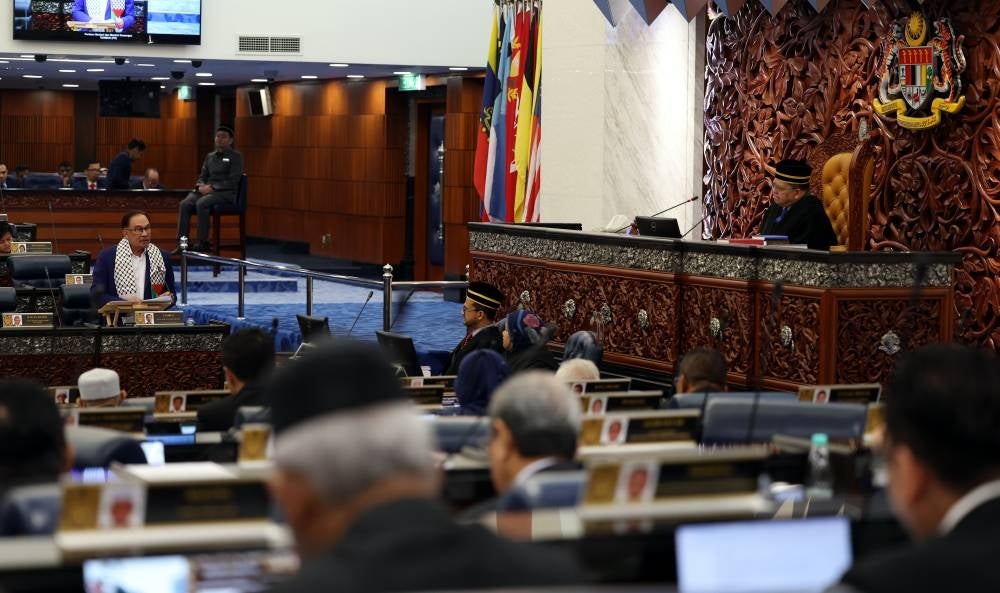Dewan Rakyat: Rice supply, REE, tuition fees among issues raised by MPs

KUALA LUMPUR - The government has been urged to implement more proactive approaches in efforts to increase rice production and support local padi cultivation to ensure a continuous and sufficient supply of rice in the country.
Cha Kee Chin (PH-Rasah) who raised the matter during the debate session for the Supply Bill 2024 (policy level) in the Dewan Rakyat today said it was high time for the government to reduce reliance on the import market, especially when it comes to obtaining rice.
"We should not put an 80 per cent target for local rice production by 2030, instead we should aim that by 2035, 100 per cent of rice in the country should be locally sourced...that’s the goal that we should strive for by implementing all our efforts.
"We must reduce reliance on imports. We must remember that even though we have the means to buy (rice from) foreign countries...once they have a shortage of their produce, they will restrict exports to other countries, and we will become victims,” he said.
Cha, who is also the chairman of the Special Select Committee on Domestic Trade, Entrepreneurship, Cost of Living and Agriculture also urged the government to empower smart agriculture that is being implemented in Japan to ensure sufficient food supply for the people.
"Japan has a stable sale supply and the capability to provide 100 per cent or more of its rice to a population of 125 million people of which more than 50 per cent of its farmers are aged 60 and above.
"They are ageing (but) the farmers do not use it as an excuse and their productivity remains high because they use smart agriculture,” he said.
Also raised during the debate session were issues involving rare earth elements (REE), public higher education institutions (IPTA) tuition fees and the tourism sector.
Regarding REE, Datuk Seri Tuan Ibrahim Tuan Man (PN-Kubang Kerian) wanted the government to provide expertise in the exploration of REE to ensure that the states with reserves of the minerals can fully utilise it.
He said seven states have been identified to have huge REE reserves that can contribute to the country’s revenue, adding that without the expertise the reserves would be encroached upon, the minerals stolen and smuggled out.
In the education sector, Datuk Seri Sh Mohmed Puzi Sh Ali (BN-Pekan) proposed the use of the waqf system to help reduce tuition fees at IPTAs, especially for the benefit of B40 students.
According to him through the system, universities can earn returns on the investment of endowment funds to cover operational and development costs while not relying entirely on government funding.
"This is the best concept which is being implemented in foreign countries such as at Harvard University, which has an endowment fund of USD49.5 billion. The government can also help to implement donation matching or tax exemption for all waqf contributors,” he said.
He said the initiative requires an allocation from the government only at the initial stage as in the long run it will save government funds.
Meanwhile, Datuk Radzi Jidin (PN-Putrajaya) proposed a task force involving relevant ministries and agencies to implement efforts in boosting the tourism sector, saying that efforts should focus on high-value tourism as well as encouraging foreign tourists to spend money while in the country.
The government should also consider special incentives for specific segments such as health and eco-tourism, he added.
The Dewan Rakyat sitting continues on Monday. - BERNAMA











